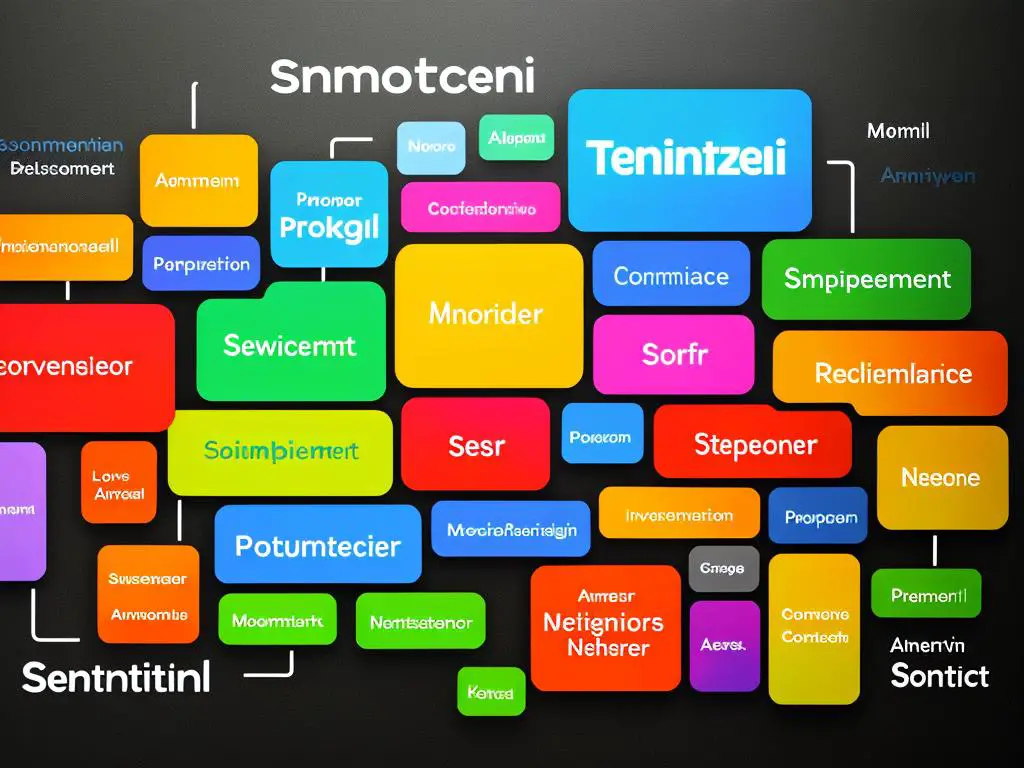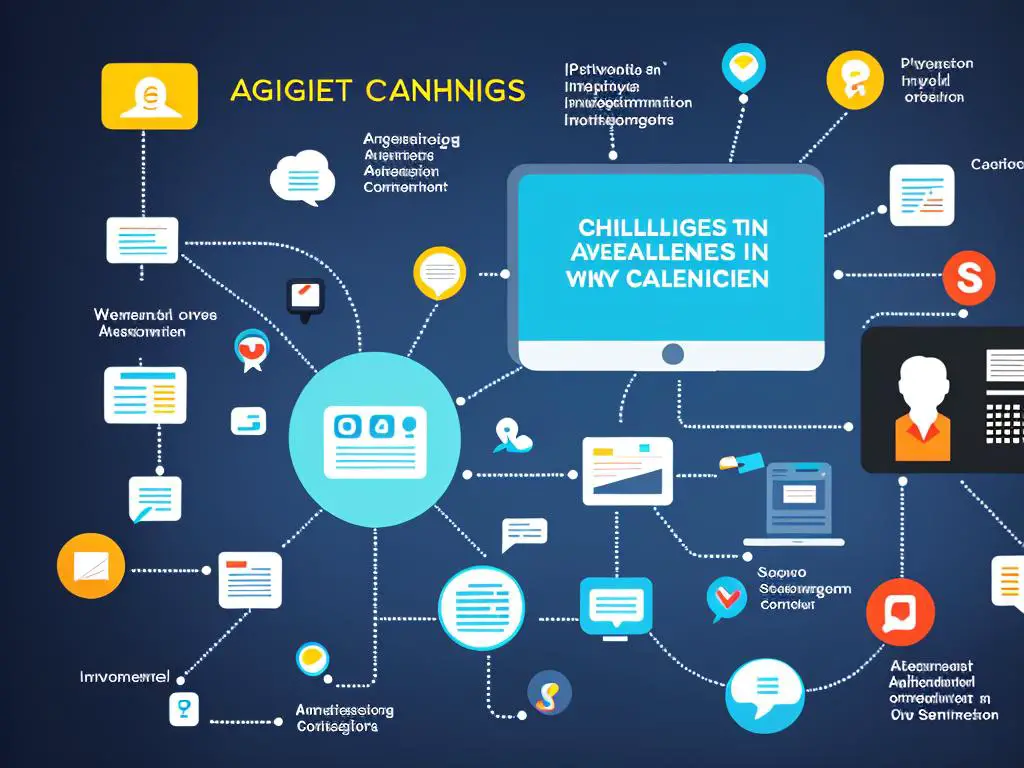In the realm of data analytics, understanding human sentiment serves as a key factor in decision-making processes. One technique pivotal in deriving insightful interpretations from text data is sentiment analysis. This technique not only deciphers emotions, opinions, and attitudes embedded within texts but also provides critical information on customer experiences, product reviews, and social media content.
The dynamic field of natural language processing has witnessed the advent of a revolutionary model, AgentGPT by OpenAI, which has redefined the boundaries of machine intelligence. Used rightfully, AgentGPT transcends traditional models by understanding and creating near-human-like text while promising unmatched potential applications and implications. This discourse intends to delve into the intricacies of sentiment analysis, explore the prowess of AgentGPT, and expound on the intersection of these two domains.
Understanding Sentiment Analysis
Table of Contents
Understanding Sentiment Analysis: A Primer
Sentiment Analysis, alternatively known as ‘opinion mining,’ is an essential method used in data analytics and decision-making. At its core, sentiment analysis is about understanding emotions, opinions, and attitudes embedded in written text data. This technique leverages Natural Language Processing (NLP), text analysis, and computational linguistics to identify subjective information from source materials.
Sentiment Analysis: How Does It Work?
In essence, Sentiment Analysis works by classifying sentiments expressed in a piece of text. These sentiments are usually categorized into positive, negative, or neutral judgments, which correspond to the attitudes, emotions, or opinions conveyed in the text.
The process of Sentiment Analysis involves several steps. Initially, the system identifies the subject matter in question. Following this, it defines the sentiment terms related to the subject. It then applies algorithms to determine the polarity of the sentiment. Some systems even go a step further to measure the intensity of a sentiment. The resulting classification provides an insight into the sentiment present in the text data.
Interpreting Data using Sentiment Analysis
One of the primary ways sentiment analysis is deployed is through interpreting data from customer experiences, product reviews, and social media content. Businesses use this method to gauge consumers’ sentiments about their offerings, whether products or services, and their overall brand perception.
For instance, a negative review on a product can signal the product does not meet consumers’ expectations. By identifying these sentiments, businesses can take more informed decisions to refine their strategies, enhance customer experience, or improve their products or services.
Similarly, organizations utilise sentiment analysis to assess public opinion on policy decisions, election campaigns, or social welfare initiatives. By determining the prevailing sentiment in public dialogue, they can better strategize their communication and actions, ensuring they’re well-aligned with the prevailing public mood.
In the Context of AgentGPT
When it comes to AgentGPT, it could theoretically be used to perform sentiment analysis tasks. As an AI model, AgentGPT is designed for conversational purposes. The model has been trained with a diverse range of internet text. However, it doesn’t know specifics about which documents were in its training set or any confidential, personal, or proprietary information. Its capabilities are general, not specifically oriented towards sentiment analysis.
AgentGPT can simulate conversation and respond to prompts, making it a potential tool for sentiment analysis if one were to train it to recognize and interpret sentiments from the text. This would require additional training and fine-tuning on sentiment analysis tasks, ensuring that the AI’s responses align accurately to the sentiments detected in the conversation or text.
However, it’s important to remember that while AgentGPT could be a useful tool in sentiment analysis, it would not be perfect. It could miss nuances or interpret text inaccurately since AI doesn’t truly understand human emotions but rather identifies patterns in data.
The Power and Potential of Sentiment Analysis
Sentiment analysis, a discipline focused on deciphering emotions, attitudes, and viewpoints in textual data, is an essential tool for understanding complex human reactions. Its applications, particularly in market research and customer feedback, are profound. The advent of AI models such as AgentGPT has amplified the capabilities of sentiment analysis. Nevertheless, a level of vigilance is necessary due to the existing limitations of AI technology.

Exploring AgentGPT
Welcome AgentGPT: A Major Progress in Natural Language Processing
OpenAI, a vanguard in the artificial intelligence and machine learning field, has launched AgentGPT. This innovative AI model is poised to reshape the natural language processing (NLP) sector significantly.
In contrast to traditional models, which are more deterministic and rigid, AgentGPT employs a more flexible, intuitive methodology. It has demonstrated proficiency in reproducing human-like text with impressive precision, indicating substantial progress for conversational AI systems.
Trained on an extensive array of text data, AgentGPT possesses an intricate understanding of complex language structures, idioms, cultural allusions, and emotional undertones. Its training dataset has allowed this advanced AI model to access a vast, diverse repertoire of linguistic resources.
The Technical Framework of AgentGPT
Delving into the workings of AgentGPT requires understanding the basic concept of General Pre-training Transformers (GPT). The model makes use of transformer architecture, a mechanism originally designed to handle machine translation tasks. However, GPT extends this framework by incorporating a generative pre-training phase that helps the model understand text in a more nuanced manner.
Furthermore, each output from the model is based on the historical context of the dialogue rather than a mere response to the immediate preceding user message. This approach enables AgentGPT to maintain continuity in the conversation, leading to more meaningful and coherent interactions.
Sentiment Analysis: An Extra Edge for AgentGPT
One of the standout features of AgentGPT is its robust capability for sentiment analysis. This process involves discerning subjective information from text data, such as opinions, attitudes, and emotions.
In essence, AgentGPT can read between the lines. It can understand a user’s sentiment in real-time, determine the intent behind a user’s input, and craft responses accordingly. This feature makes AgentGPT remarkably useful in customer service, market research, and social media monitoring applications, to mention a few.
The Future: Potential Applications and Implications
The capabilities of AgentGPT reach far beyond just understanding and generating text. Its proficiency in sentiment analysis can be a game-changer. From automating customer support to assisting in mental health diagnosis by gauging a user’s emotional state, the applications are vast and varied.
In addition, by applying AgentGPT’s algorithms to diverse domains such as financial markets or political studies, organizations can capture precise public sentiments and tune their strategies accordingly.
However, while this technological advancement brings many exciting opportunities, it also raises ethical concerns surrounding data privacy and AI ethics. Ensuring balanced use of such capabilities would require close monitoring and robust regulatory frameworks.
In essence, AgentGPT represents a pioneering method for natural language processing and sentiment analysis, presenting extensive possibilities for application. The ongoing progress of this technology will undoubtedly influence various areas of how we interact with artificial intelligence.

AgentGPT in Sentiment Analysis
Unveiling Agent GPT and Sentiment Analysis: The New Dawn in Text Analysis
AgentGPT, a creation of OpenAI, represents an AI system crafted to simulate human-like conversation dynamics. It’s designed to integrate smoothly into the conversational flow, resembling the typical human interaction by generating responses, posing questions, and offering insightful contributions.
Contrarily, sentiment analysis, otherwise referred to as emotion AI or opinion mining, serves to dissect documents, social media discourse, and other textual matter to detect and comprehend the author’s sentiment, which could be either positive, negative, or neutral.
The amalgamation of these two sophisticated technologies results in potent instruments capable of deriving significant data from an enormous range of textual sources.
Interplay of AgentGPT and Sentiment Analysis
The potential of AgentGPT to apply sentiment analysis is immense and it can cover a broad bandwidth of applications. AgentGPT can be trained to recognize emotions and attitudes expressed in various forms of text. The AI processes the text to identify contextual references, tonal cues, and nuanced language that indicates the sentiment of the author.
Given its conversational ability, AgentGPT can decipher the text in a much more human-like way compared to traditional models, leading to more reliable and accurate sentiment analysis.
Real-World Applications and Case Studies
One example of how AgentGPT is revolutionizing sentiment analysis can be seen in social media content analysis. Brands often want to determine their customers’ feelings about their product or service, which can be positive, negative, or neutral. By implementing sentiment analysis using AgentGPT, these businesses can now get pinpoint accurate sentiments from customer reviews, posts, and comments, which, in turn, will help them improve their products or services.
In the healthcare industry, AgentGPT can analyze patient records and physician notes to proactively identify patients who may be at risk or to uncover emerging trends in patient health. A real-world use case is a hospital using AgentGPT to sift through patient feedback, reviews, and complaints to identify areas for improvement in their services.
The Future of Sentiment Analysis Powered by AgentGPT
The increasing integration of AgentGPT with sentiment analysis technologies is paving the way for advancements in multiple industries. The continuing development of these tools promises to enhance the accuracy and reliability of sentiment analysis. Realms such as public opinion polling, customer service, and marketing, which strongly rely on understanding human sentiment, could see significant transformations.
As progress continues, we will likely see more educational institutions, businesses, and governments adopting AgentGPT-enabled sentiment analysis in their decision-making processes. This integration promises to result in more accurate, emotion-aware outcomes. The potential applications of AgentGPT in sentiment analysis are vast and the future is indeed promising.

Potential Challenges and Solutions
Overcoming Challenges in the Implementation of AgentGPT for Sentiment Analysis
Undoubtedly, AgentGPT, an invention from OpenAI, holds the capacity to reshape sentiment analysis. Nevertheless, as with any evolving technology, it is important to acknowledge and address the challenges that come with its development and application. As we work towards refining this technology, these challenges should be recognized and solutions identified to ensure its impactful potential is fully realized.
Bias in Machine Learning
One of the major problems that needs to be addressed is bias. Because it learns from text inputs, AgentGPT can inadvertently learn and perpetuate human biases present in the data it’s trained on. For example, if the AI is trained on text data that has racial or gender bias, the AI might produce biased sentiment analysis. This can lead to skewed results and inaccurate insights, which might disadvantage certain demographic groups.
Data Privacy Concerns
Another significant challenge relates to data privacy. Given that sentiment analysis often involves analyzing sensitive information like customer reviews, feedback, and social media posts, there’s a risk of infringing on individuals’ privacy rights. If not properly addressed, this could lead to legal consequences and damage to a company or organization’s reputation.
The Need for Human Supervision
Despite its intelligence, AgentGPT still requires human supervision. It’s not always capable of understanding complex human language subtleties, such as sarcasm, irony, or cultural references. Without a human to provide context, the AI can misinterpret these cues and provide inaccurate sentiment analysis.
Addressing These Challenges
Despite these hurdles, strategies are being implemented and proposed to address them.
Eliminating Bias
To tackle the problem of bias, developers should aim to use diverse and unbiased datasets for training the AI. Regular audits of AgentGPT can help identify and remove any inherent bias. Active research is underway to devise techniques that make the AI more transparent, allowing users to understand how it makes decisions, which helps in identifying and correcting bias.
Respecting Data Privacy
Regarding data privacy, companies should anonymize data before using it for any analysis. Ensuring that sensitive information is de-identified can significantly reduce the risk of privacy breaches. Additionally, incorporating privacy-preserving techniques like differential privacy into the system can help maintain privacy while still enabling accurate sentiment analysis.
Incorporating Human Supervision
As for the need for human supervision, it’s crucial to have humans in the loop to oversee and guide the AI. Not only does this help to correct inaccuracies, but humans can also provide context where necessary. Another solution is to further train the AI with a broad spectrum of data that includes different tones of voice, phrases, and cultural references, to improve its understanding of nuanced human language.
In conclusion
it’s clear that while AgentGPT holds great promise for sentiment analysis, it also comes with its set of challenges. By addressing these through diverse and unbiased training, privacy preservation measures, and continuous human supervision, we can harness the full potential of this technology.

The endeavor to amalgamate AgentGPT’s capacities with sentiment analysis cannot overlook the omnipresent hurdles and impediments that may arise. Machine learning bias and data privacy considerations underscore major concerns that require astute attention. Furthermore, emphasis should be placed on the indispensable role of human supervision when utilizing tools such as AgentGPT.
As we progress, it becomes increasingly evident that the blend of human intuition and artificial intelligence results not only in remarkable utilities but also in potent challenges. Solutions exist and are continually being refined, opening new possibilities for these cutting-edge technologies. By addressing these challenges thoughtfully, we can unlock the true potential of AgentGPT in sentiment analysis, fostering a future teeming with clear insights, informed decisions, and enhanced experiences.

I’m Dave, a passionate advocate and follower of all things AI. I am captivated by the marvels of artificial intelligence and how it continues to revolutionize our world every single day.
My fascination extends across the entire AI spectrum, but I have a special place in my heart for AgentGPT and AutoGPT. I am consistently amazed by the power and versatility of these tools, and I believe they hold the key to transforming how we interact with information and each other.
As I continue my journey in the vast world of AI, I look forward to exploring the ever-evolving capabilities of these technologies and sharing my insights and learnings with all of you. So let’s dive deep into the realm of AI together, and discover the limitless possibilities it offers!
Interests: Artificial Intelligence, AgentGPT, AutoGPT, Machine Learning, Natural Language Processing, Deep Learning, Conversational AI.

